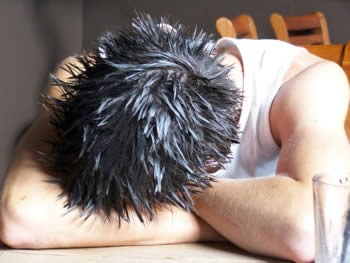Depression
The causes of depression are varied and are no respecter of social class, wealth, sex or age – it can affect almost anybody and sometimes strikes without warning.
At its Therapy, we can help you find assistance with most depressions. Why ‘most’ depressions? Well, because depression is considered to be a serious illness that needs handling with great care.
At its, we do not work with any form of clinical depression, which includes Bi-polar disorder (originally Manic Depression) and endogenous depression, thought to be caused by brain chemistry. Both of these disorders need medication, as does the depression sometimes brought about by brain damage or brain surgery.
With endogenous depression the individual is a constantly low mood, continually depressed; there is seldom, if ever, any change of emotional state and nothing seems to create a ‘lift’. Bi-polar disorder, on the other hand, is characterised by swings from lethargic depression to a euphoric state (mania). In the depressive stage, the individual is lethargically depressed and there is little or no urge to do even the basic essentials of caring for self; in the manic phase, the exact opposite applies and there is an excess of energy (sometimes accompanied by prodigious and selfishly-orientated sex-drive) and a euphoric feeling of being able to achieve almost anything. Not unusually, the sufferer, in this phase, will make elaborate and/or outrageous plans for success.
As previously mentioned, these are medical conditions beyond the scope of what we do at its; what we can help with effectively is all forms of reactive depression, that brought about by the tribulations of life.
Here are some of the causes of depression of this type:
- Redundancy
- Grief
- Relationship issues
- Money worries
- Career anxieties
- Stress
- Moving house
- Post-natal (some)
- PTSD (Post Traumatic Stress Disorder)
You get the idea – anything that has been ‘triggered’, even it has existed for some considerable time, can be helped by its therapists.
In general, face-to-face work is better here, though some improvement can be made via telephone work. E-therapy tends to be less successful.
If you are suffering from any form of depression, the earlier you seek help the more effective any therapy is likely to be and the sooner it will start to work.
Symptoms of depression
Depression symptoms can be enormously varied. Here are just a few – not an exhaustive list by any means:
- Sleeping difficulties (waking early or laying awake)
- Tired all the time
- Tearfulness for little or no reasons
- Eating when not hungry
- Not able to eat
- Loss of appetite
- Obsessive thinking patterns
- Loss of interest in personal care/hygiene
- Poor memory/concentration
- Loss of interest in sexual activity
Where therapy is indicated, it is impossible to forecast the number of sessions from this site, and indeed it would be irresponsible to do so, since if therapy did not produce a desired result within the suggested time, the depression might actually become deeper. When meeting with a therapist, though, it is often possible to get some idea of duration and number of sessions. It is fair to say that it is usually shorter than most people think.
If you are suffering from any form of depression, the earlier you seek help the more effective any therapy is likely to be and the sooner it will start to work.
Depression may be mild, moderate or severe and is more than merely feeling “sad”. It may be linked to painful or traumatic life events (e.g. Adjustment Disorder or Reactive Depression) or it may occur for apparently no reason. Sometimes the tendency to develop depression can run in families. For a diagnosis of Depression to be made, the following symptoms of depression must have been present nearly every day for at least two weeks.
1. Depressed Mood :- e.g. feeling miserable, sad, tearful, hopeless, irritable, etc. AND
2. At least four of the following : – decreased / increased appetite, weight loss or gain, insomnia (difficulty sleeping) or hypersomnia (sleeping too much), psychomotor retardation or agitation, loss of interest or pleasure in usual pastimes or decreased sex drive, fatigue, feelings of inappropriate guilt and worthlessness, concentration problems or slowed thought processes, suicidal thoughts, wishes or intentions. Possible suicide attempts.
Sometimes most, but not all, of the above symptoms of depression are present. This may mean that the depression is mild or moderate, even though a clinical diagnosis of depression cannot be made. The person might be suffering from stress or have problems adjusting to a difficult life change. Delusions or hallucinations are sometimes associated with Major Depression, but if they occur without depressed mood, then a diagnosis of depression cannot be made. Other possibilities would have to be considered (e.g. drug abuse or psychosis) and medical attention is recommended.
Online Counseling can help you to learn how to understand yourself and take responsibility for your own happiness. Remember that Depression can be treated.








